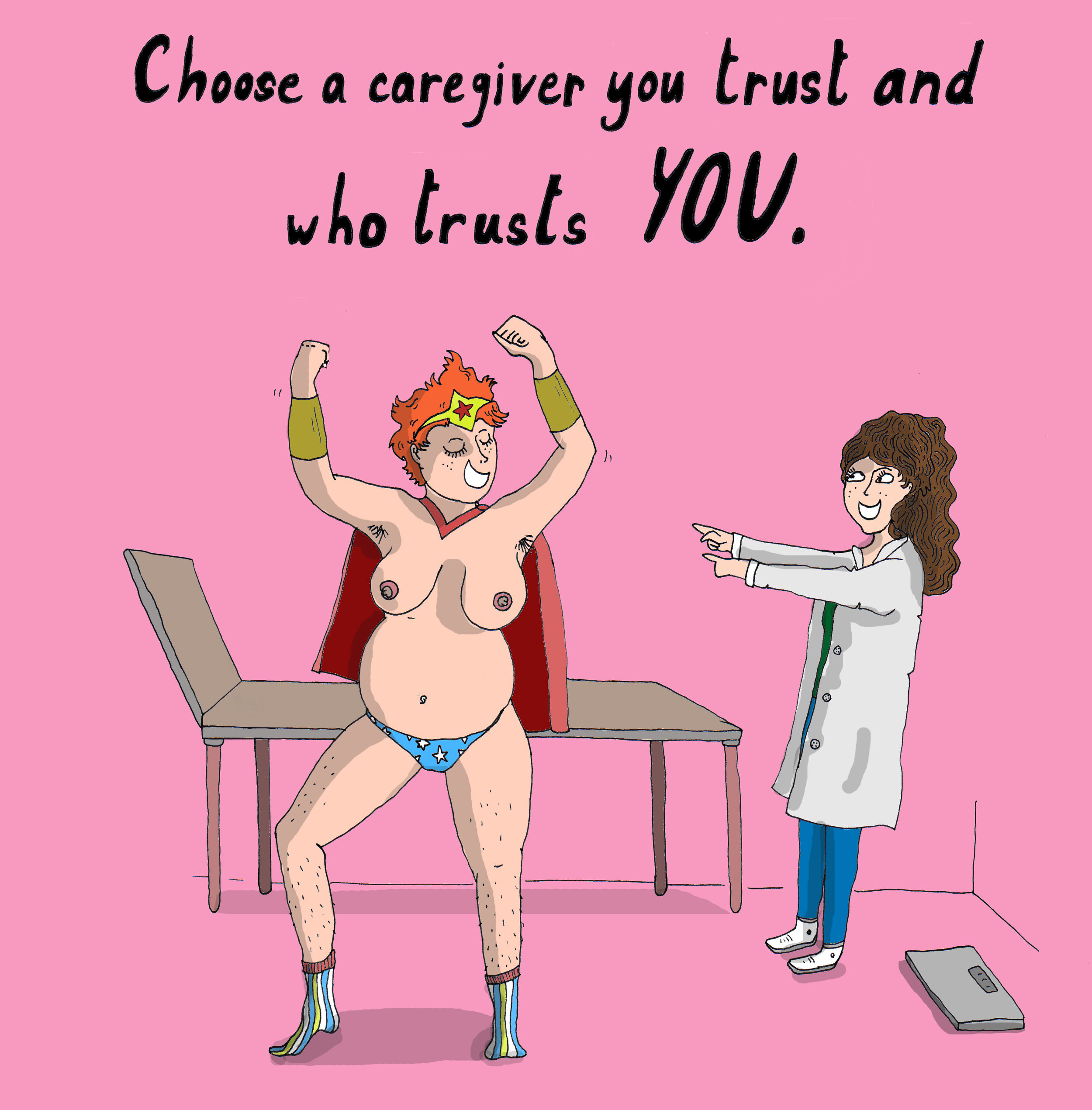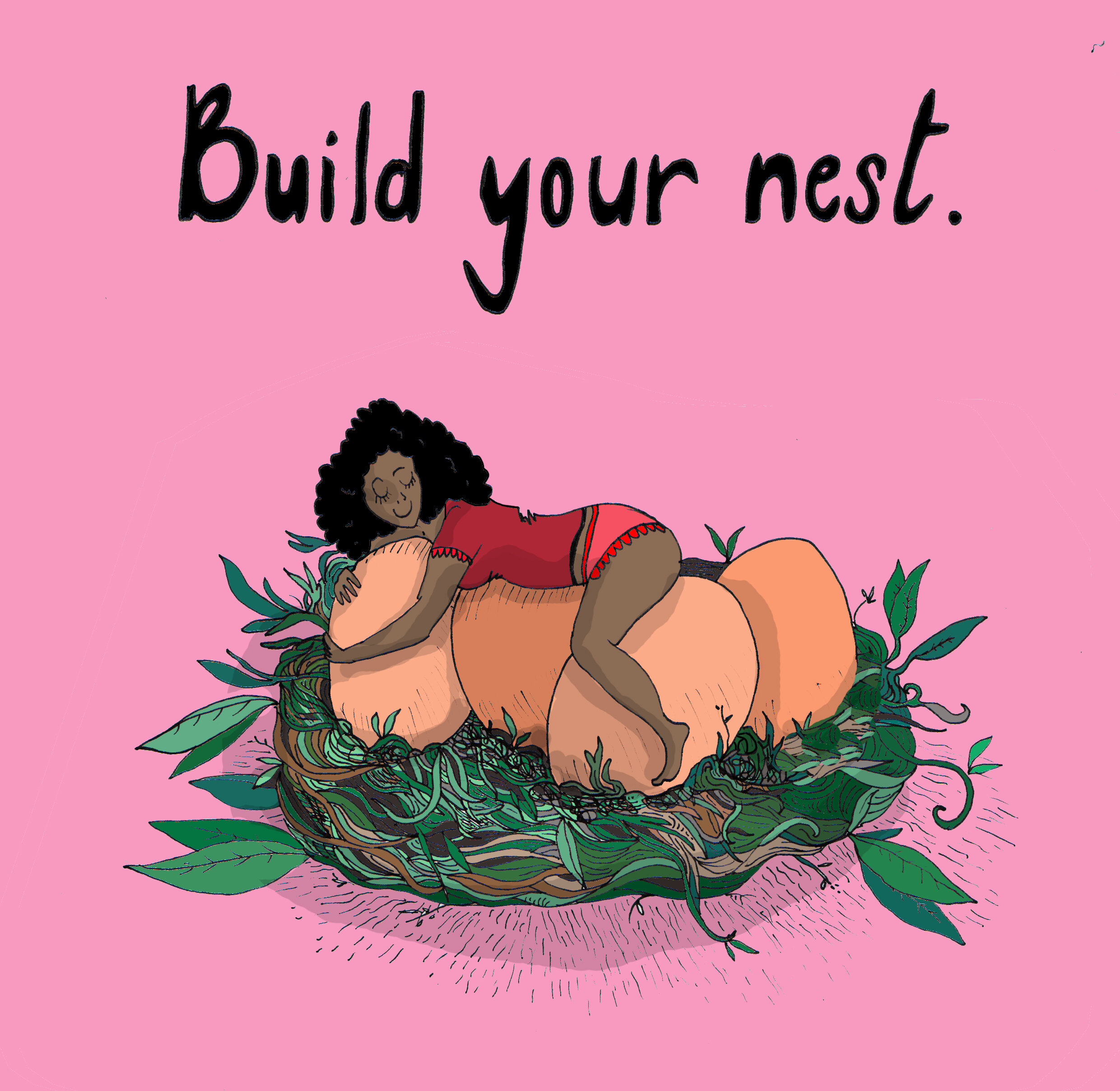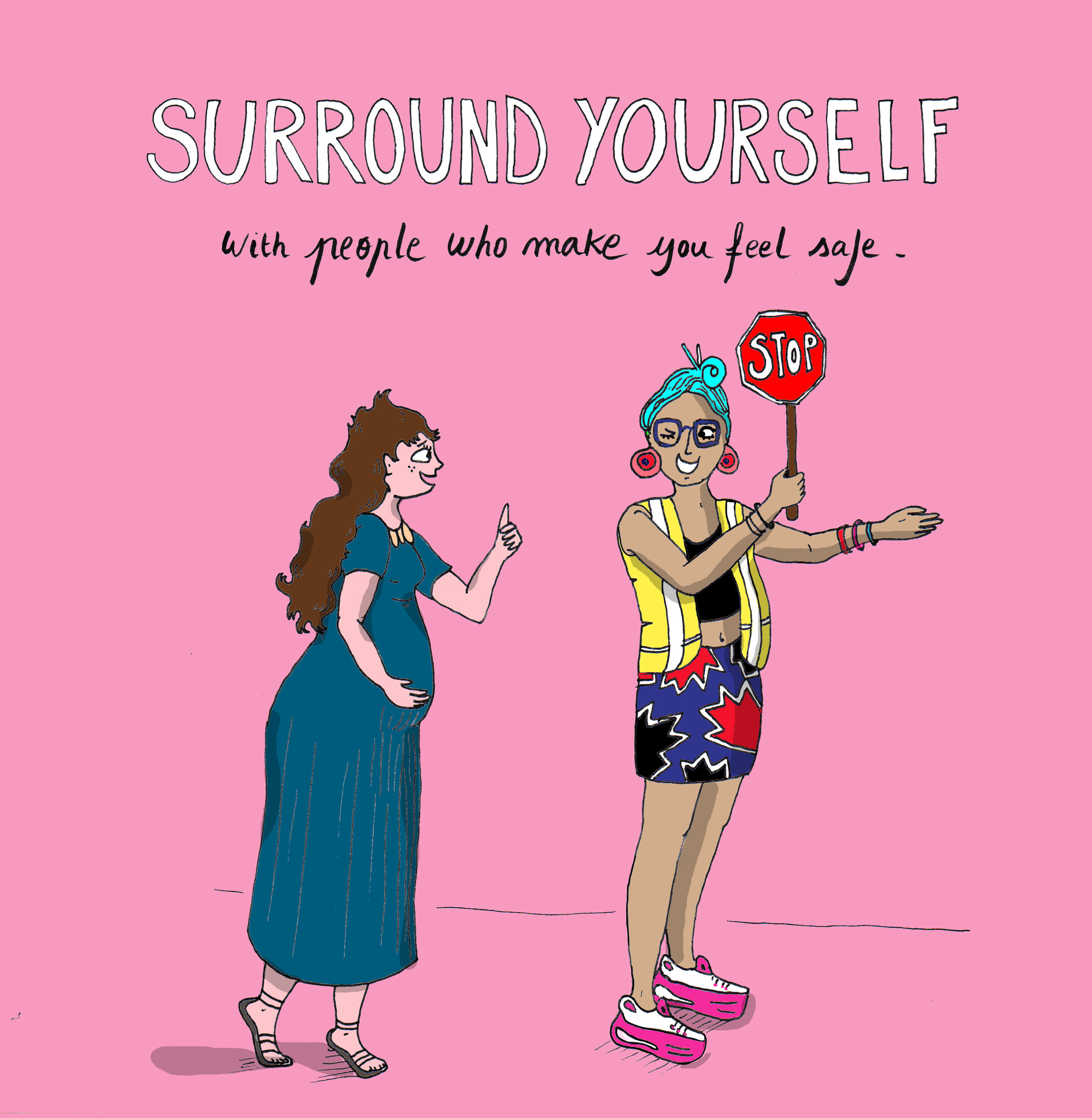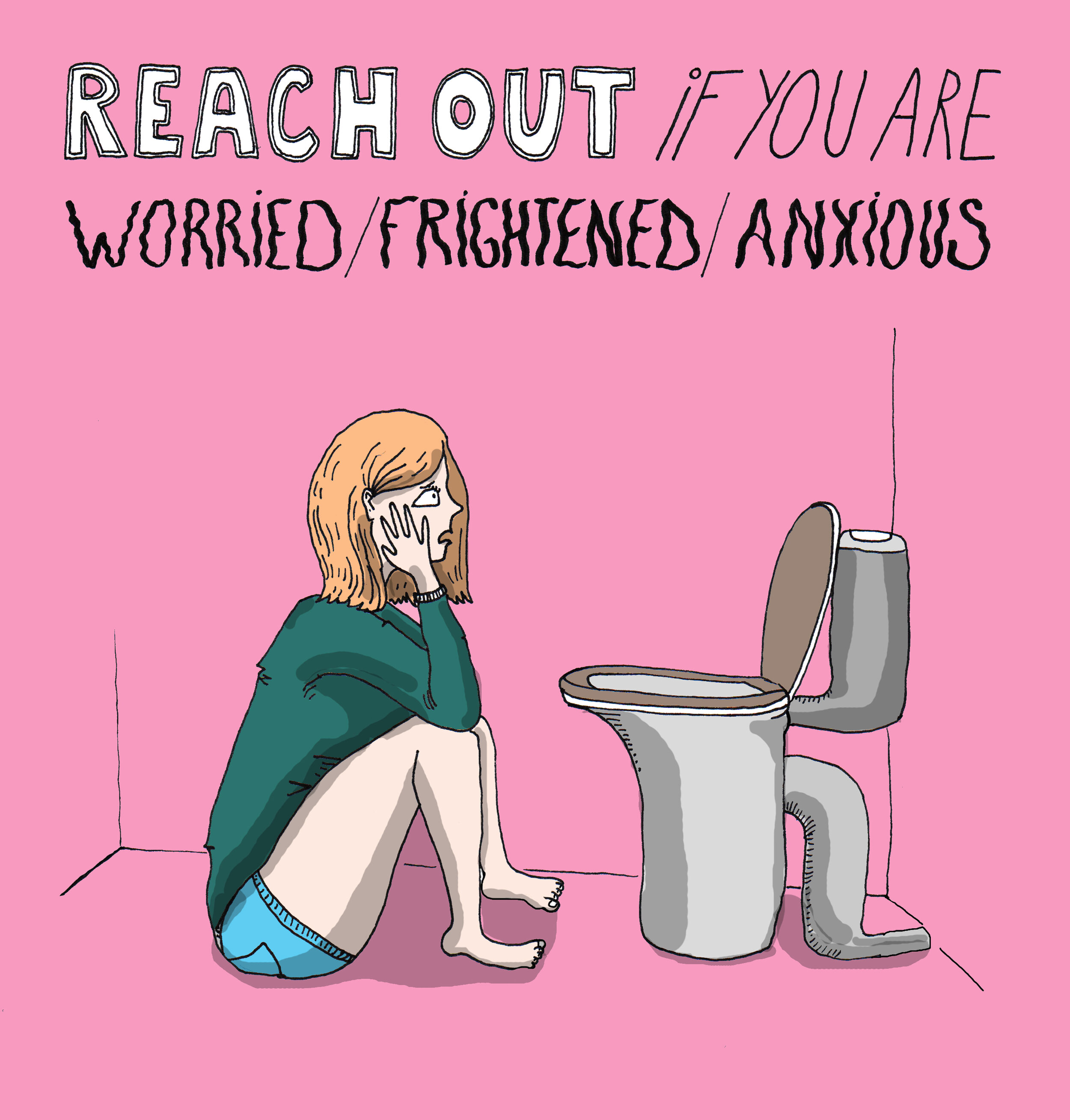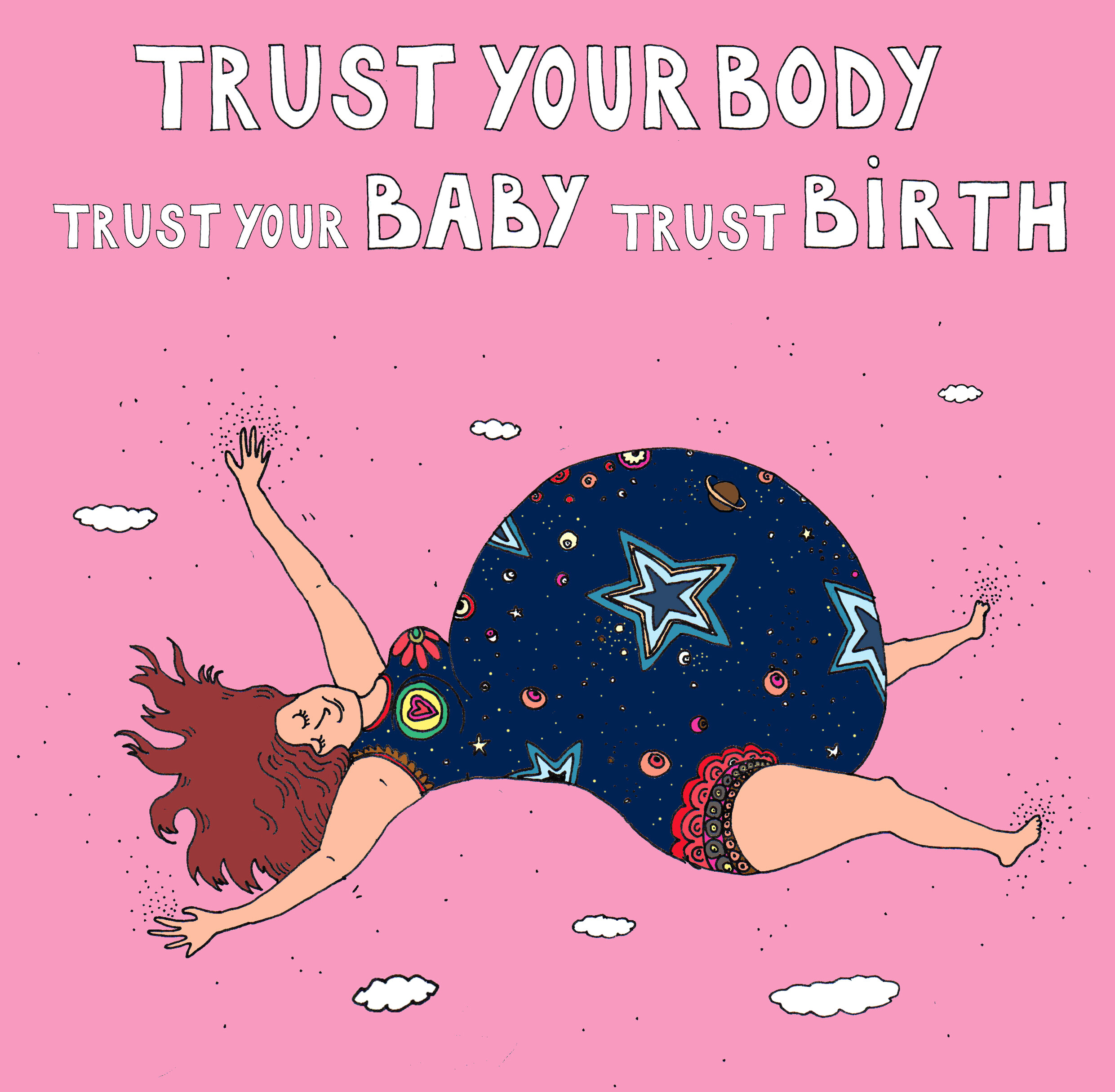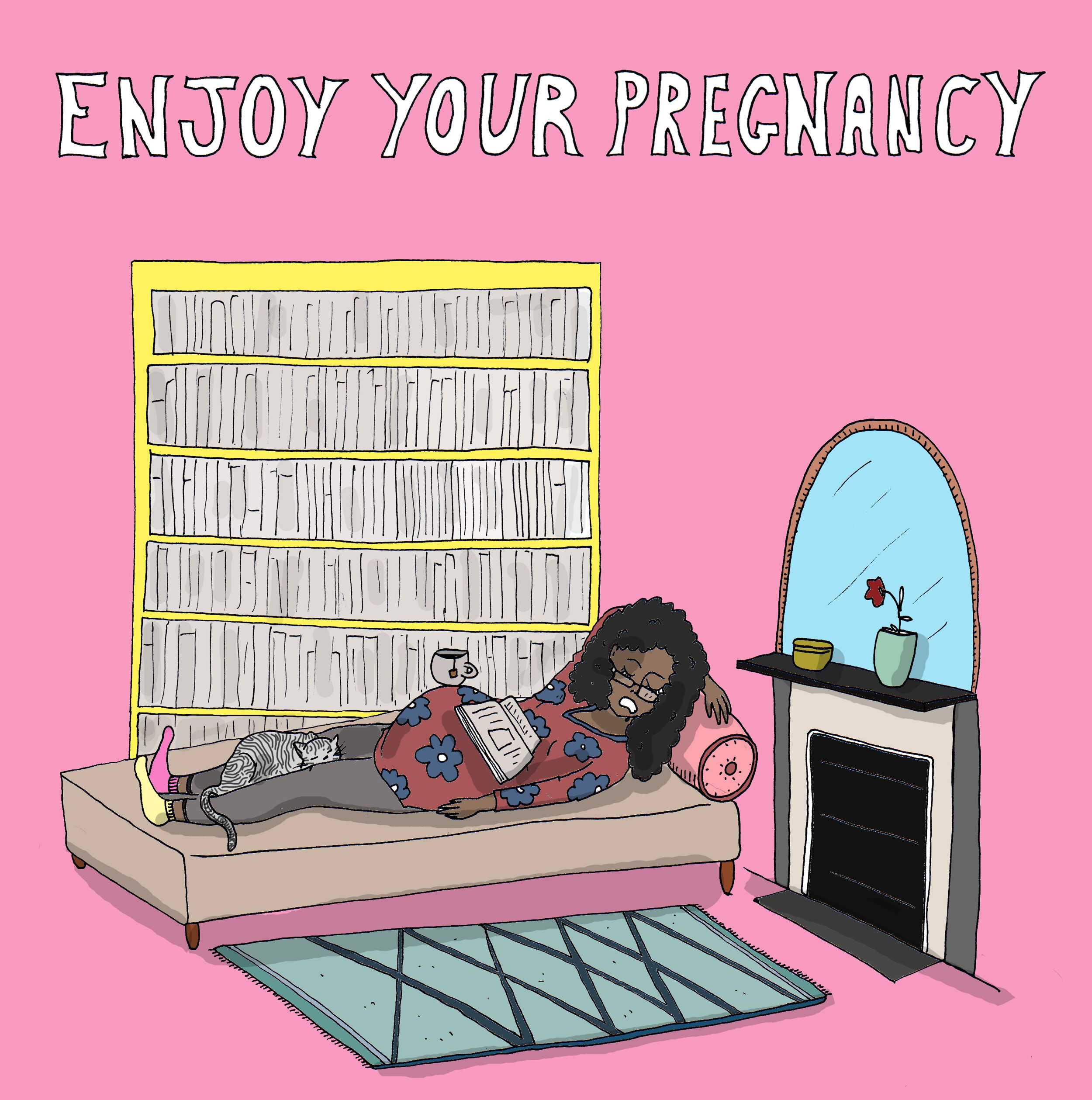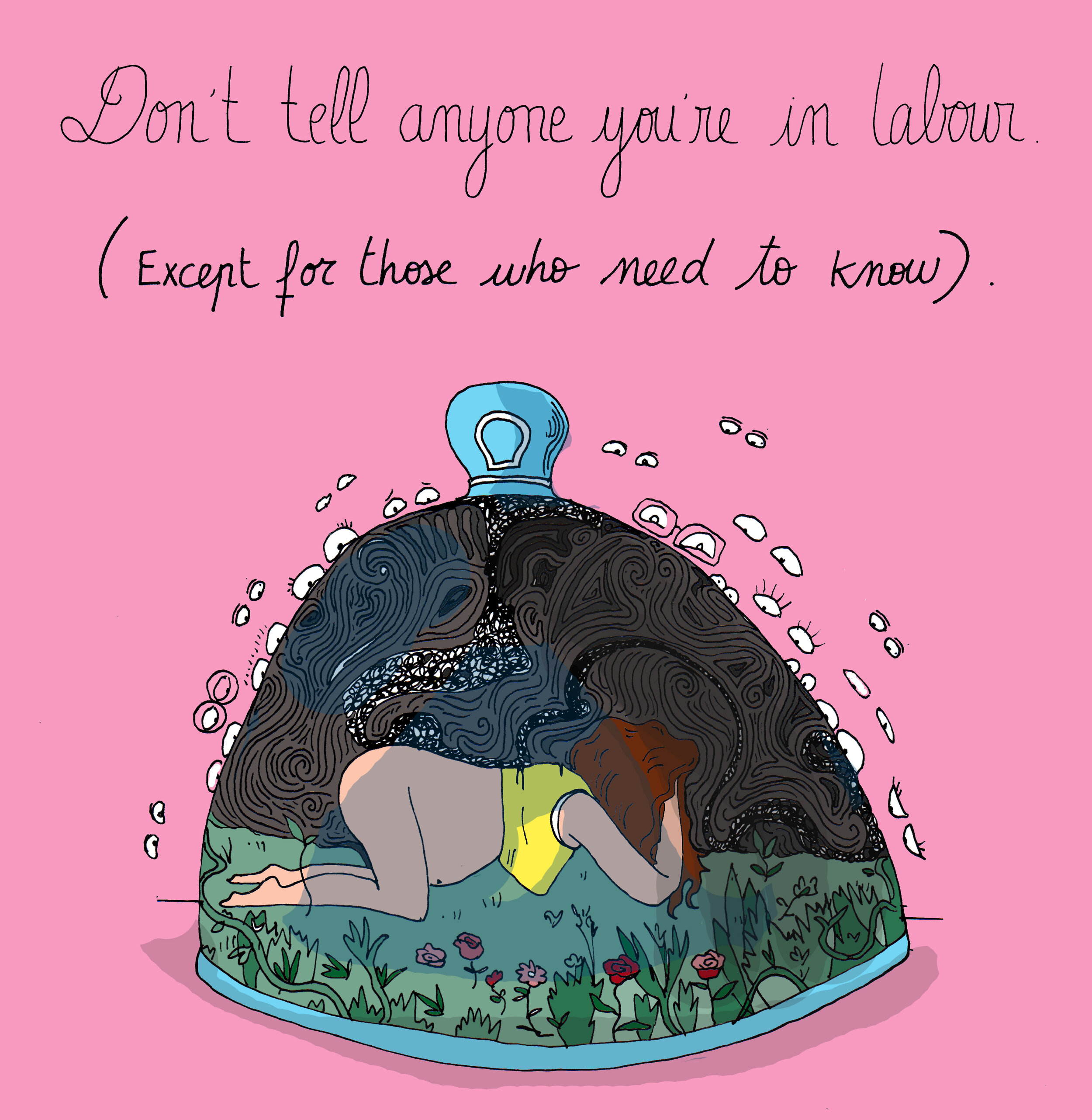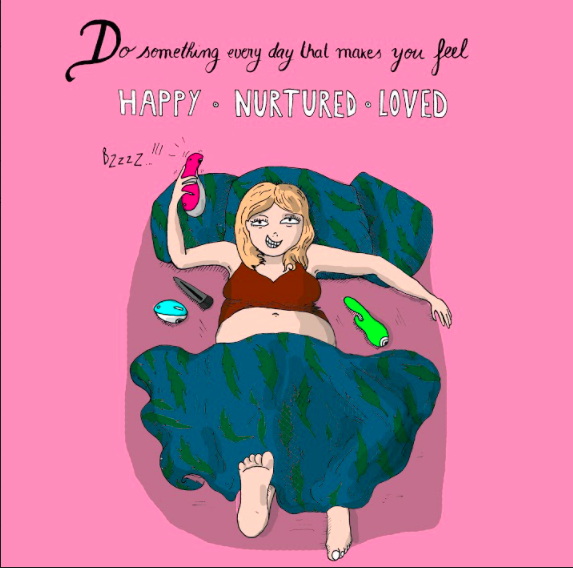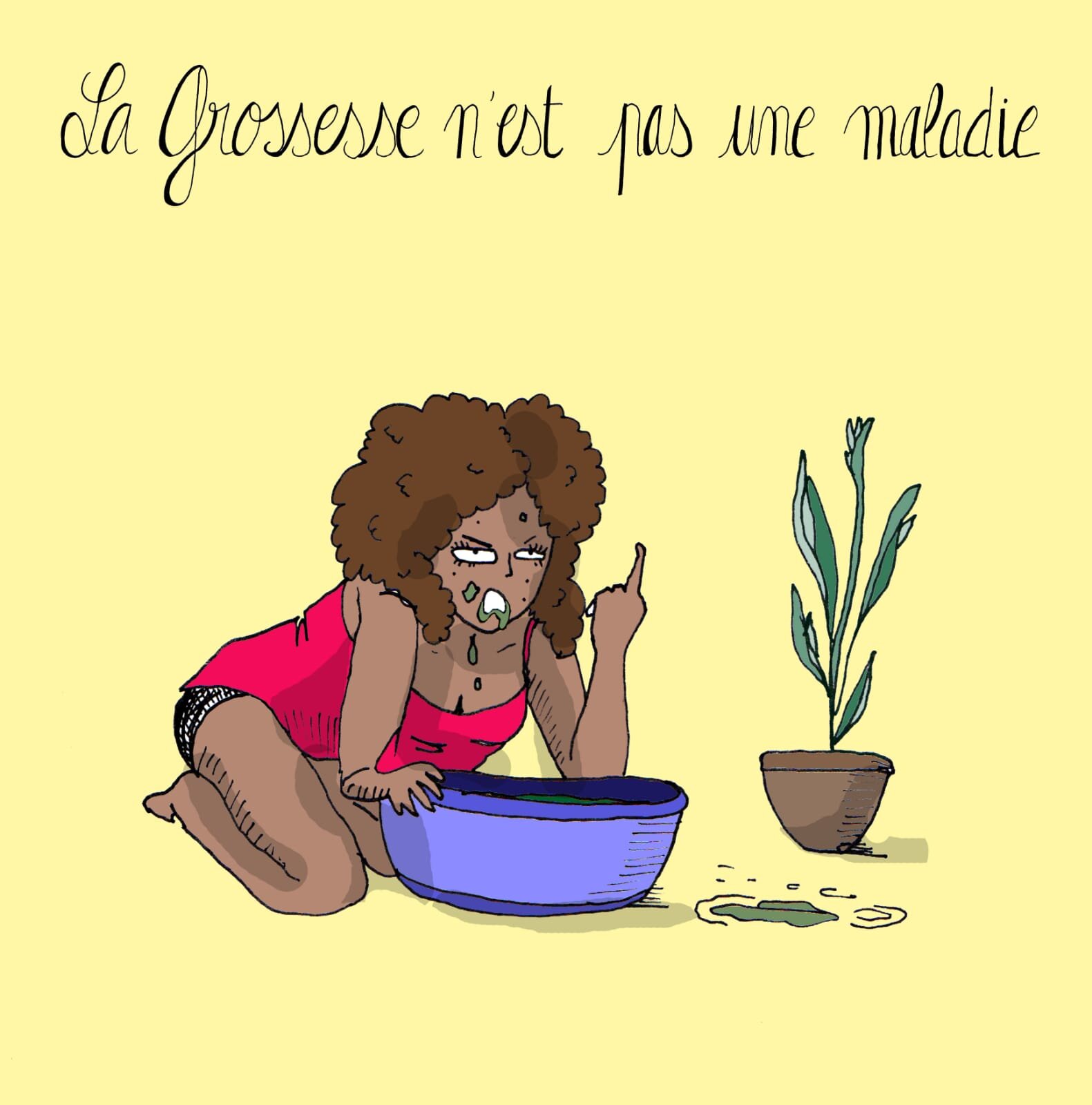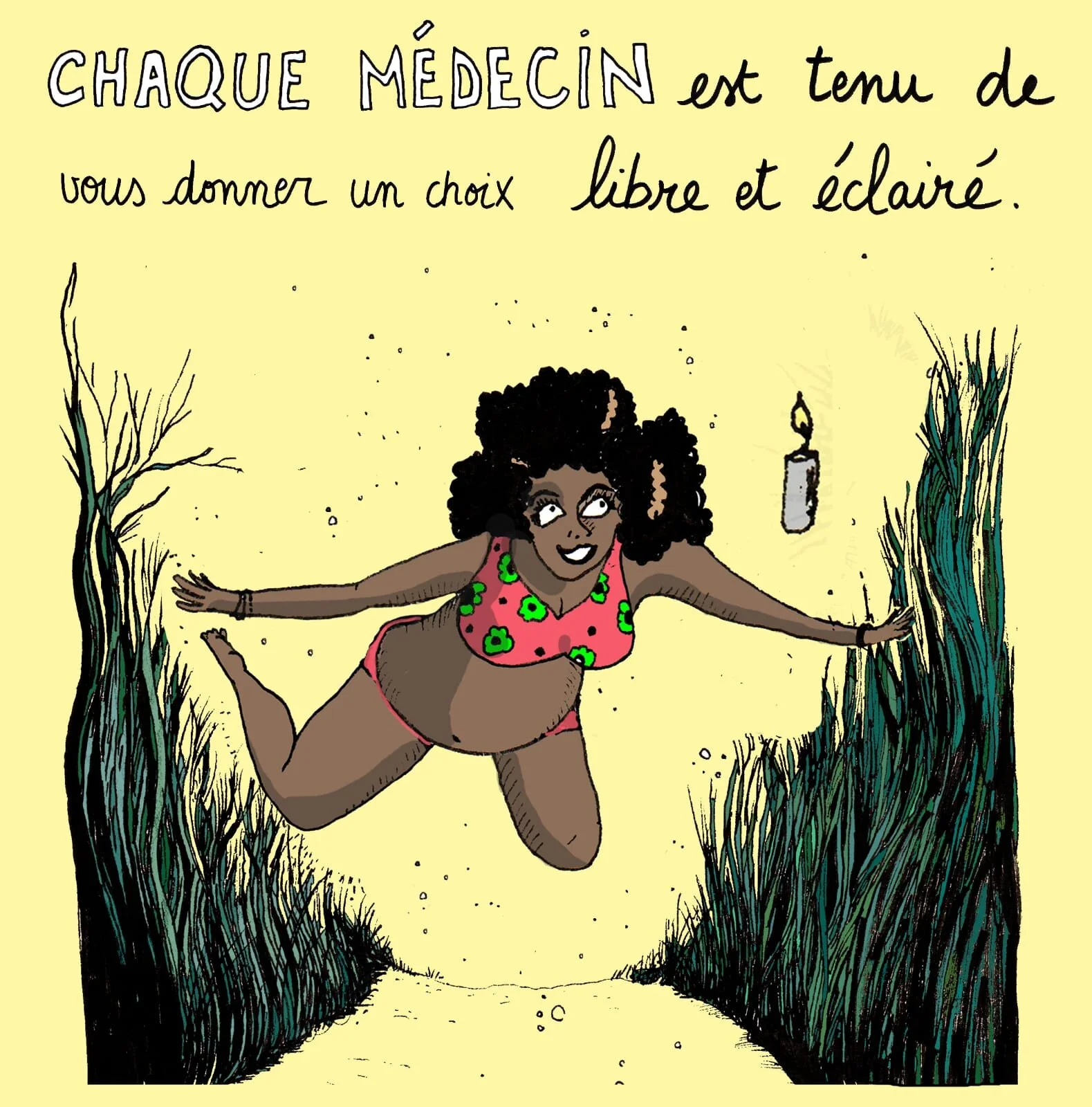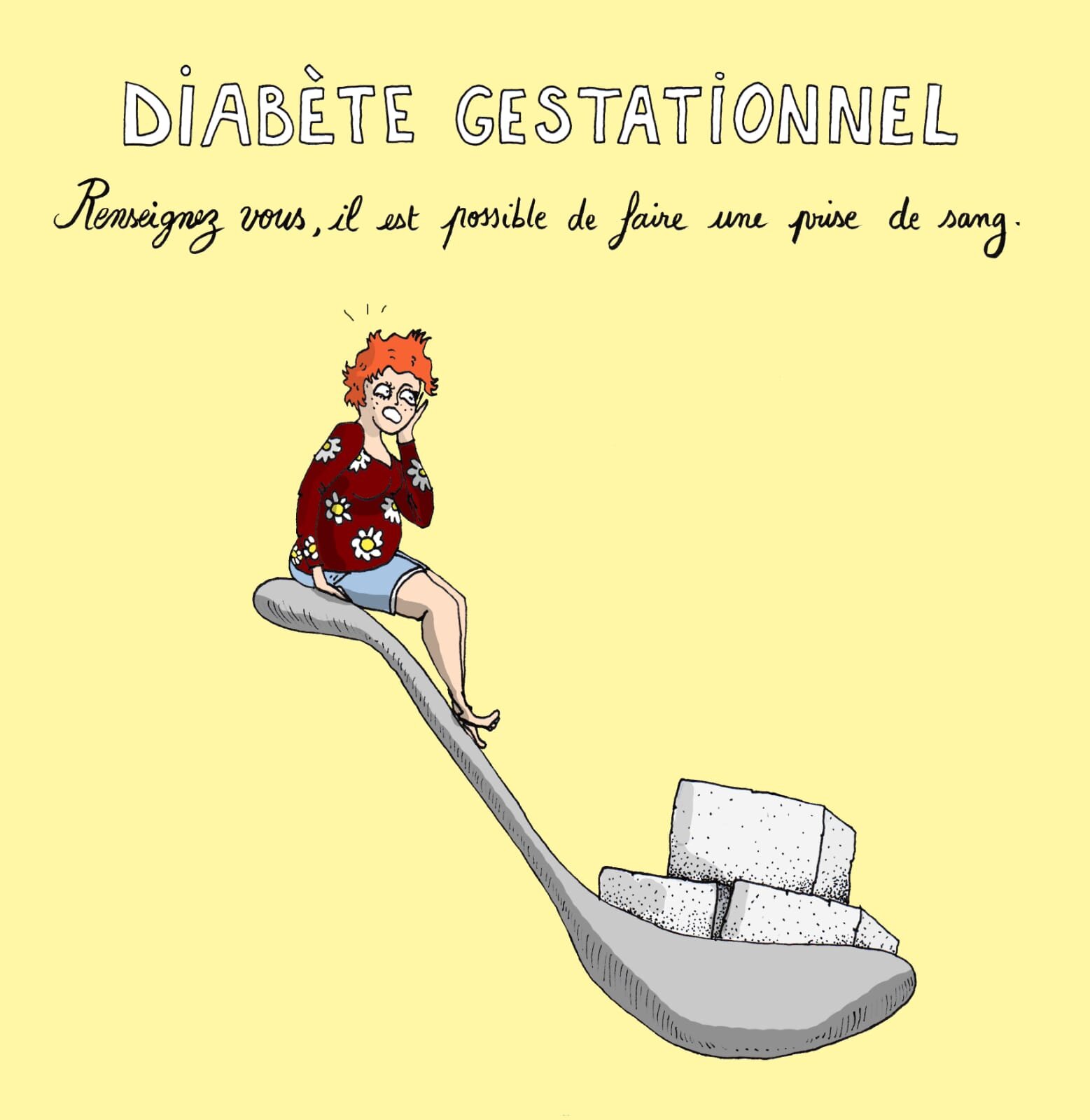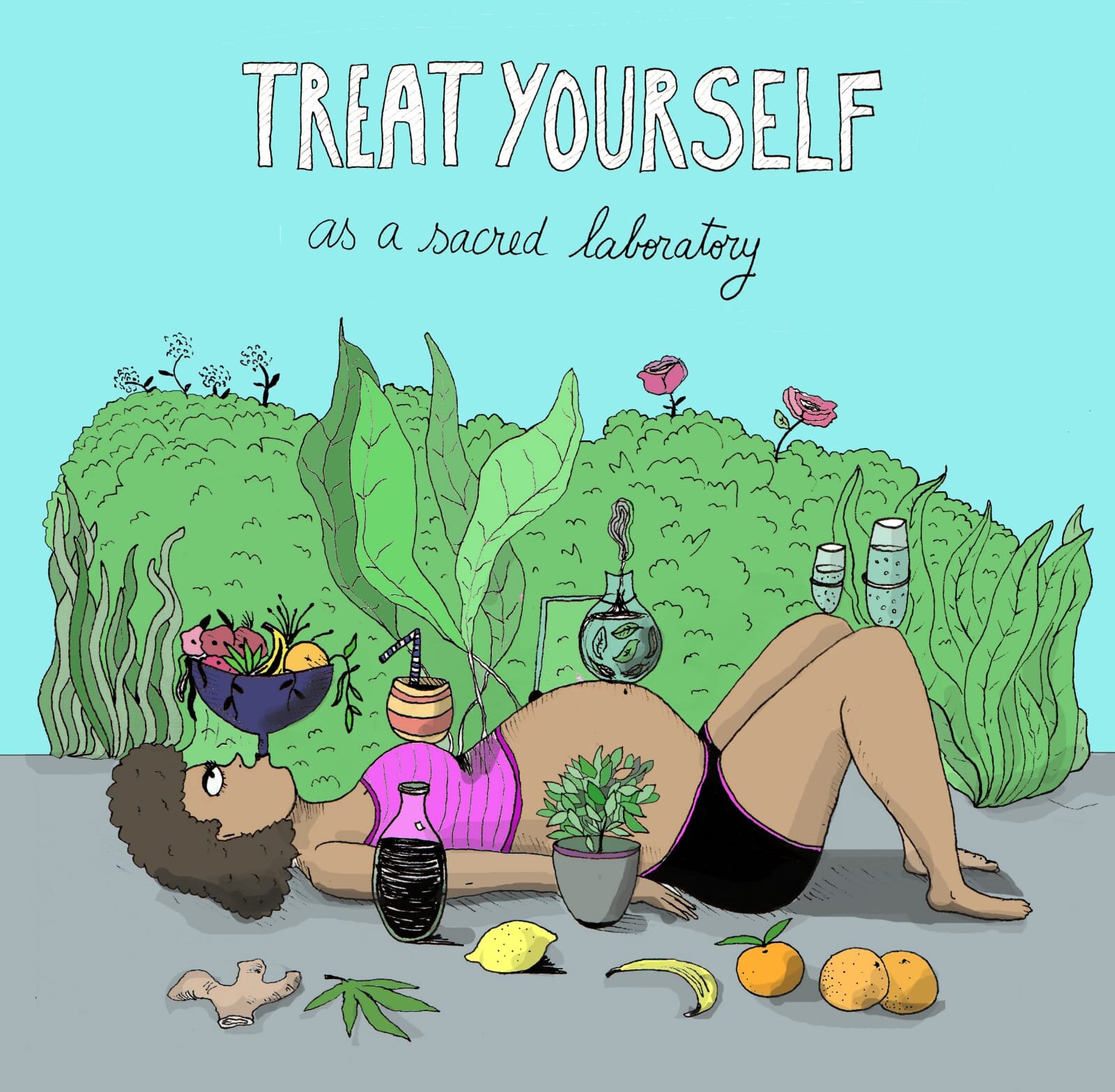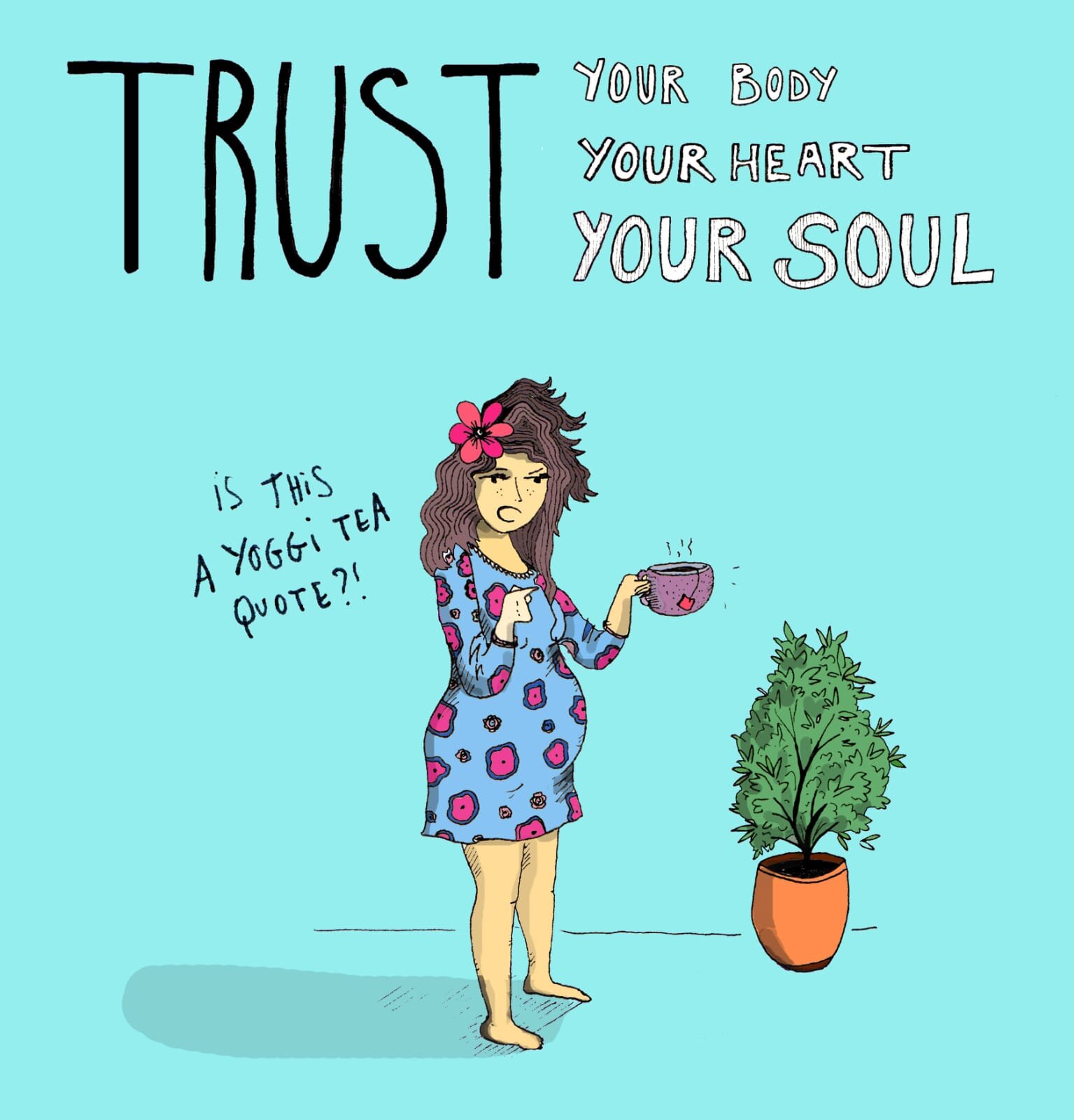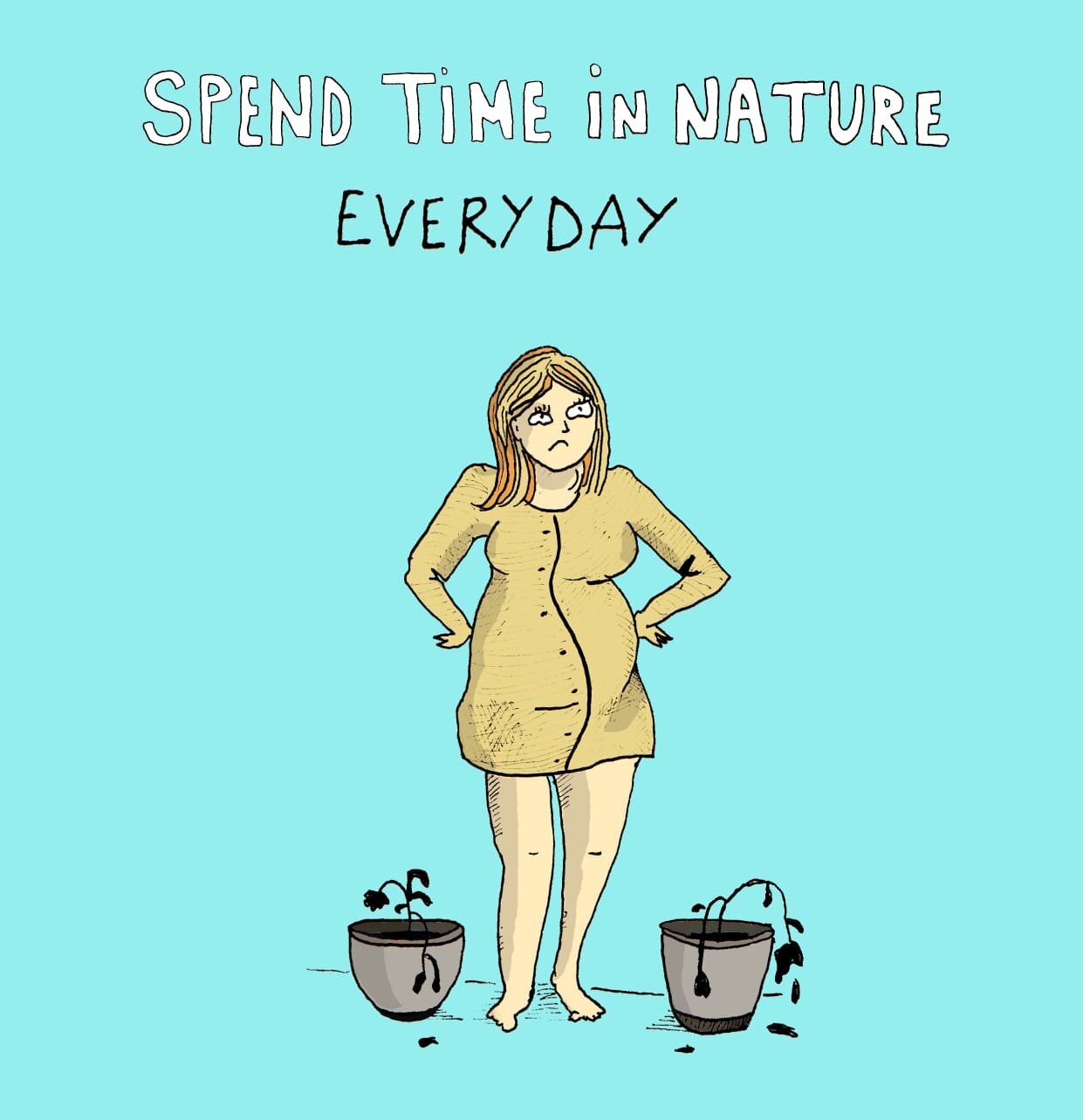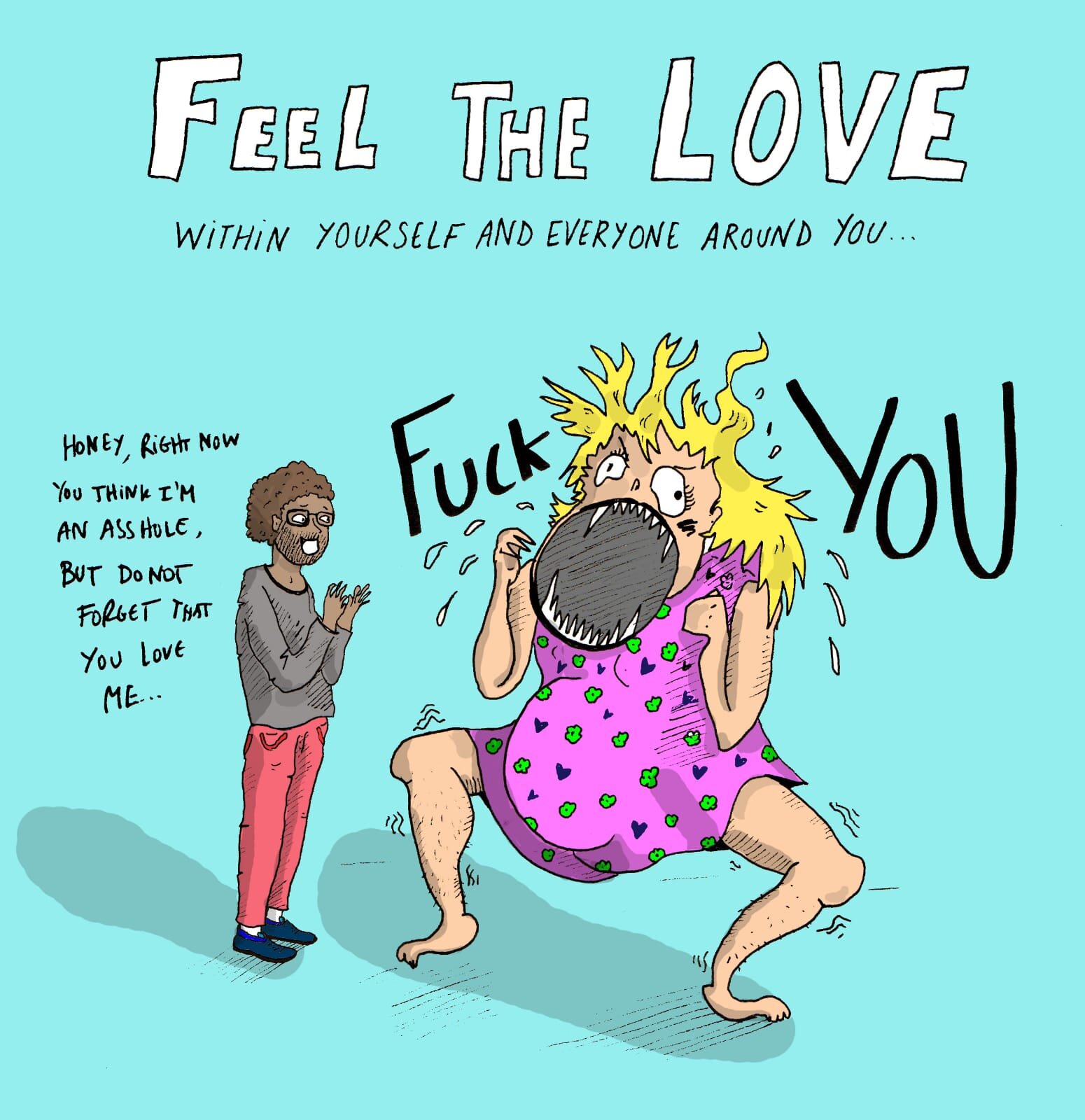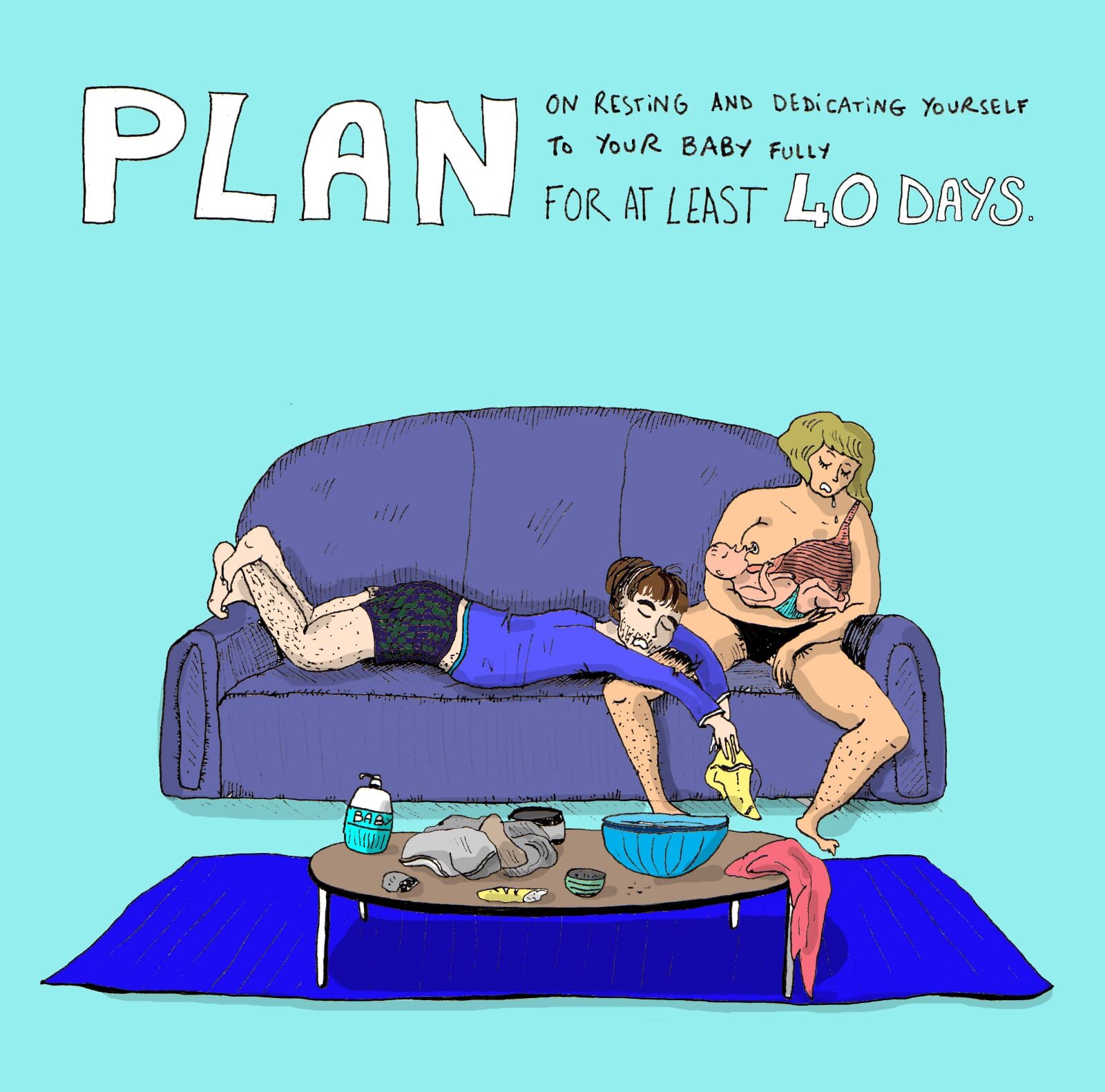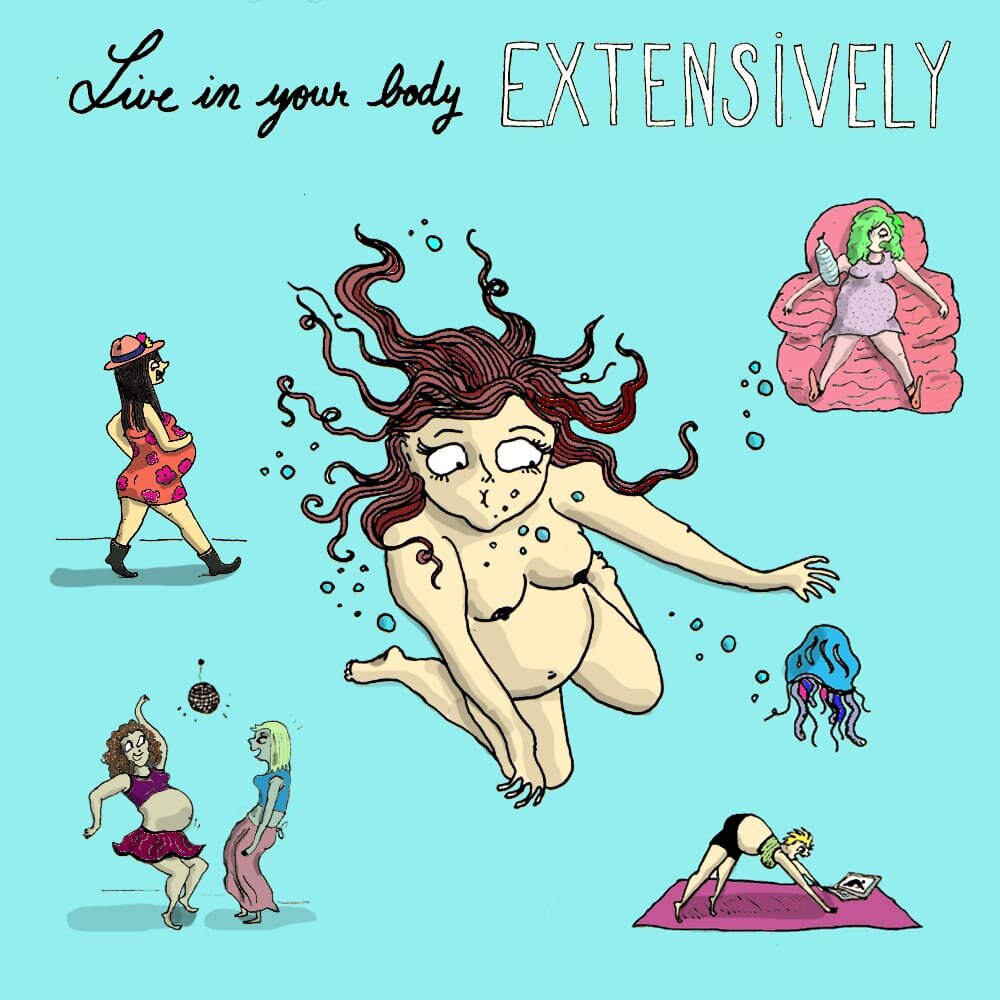Vicky à 28 ans, elle avait 4 ans lorsque pour la première fois elle a rêvé de son métier. Pendant plusieurs années, une grand-mère lui a régulièrement rendu visite la nuit. Sachez qu’au Mexique beaucoup de femmes croient en la Magie, elles ont intégrés de manière intrinsèque que les choses ne se voient pas qu’avec les yeux, les choses se sentent, les couleurs se goûtent et les plantes parlent. Vicky a fait ses études de sage-femme en continuant a rêver de cette vieille dame et a commencé à la chercher dans tout le Mexique jusqu’au jour où lors d’une cérémonie elle a compris qu’elle vivait dans son esprit: cette femme était l’ancêtre de son futur. Depuis cette réalisation, elle suit le chemin des naissances, en toute confiance. Aujourd’hui elle accompagne beaucoup de familles et enseigne le métier à d’autres femmes, en insistant toujours sur le pouvoir ancestral du féminin.
« Je pensais qu’en France les choses étaient différentes, d’avantage tournées vers la physiologie et le respect de la femme mais en fait c’est la même chose. Je déteste ce système déconnecté. Les femmes nous avons le pouvoir de nous soigner et soigner le monde. Nous devons nous connecter avec notre corps avant de nous connecter avec les autres et les propositions de la médecine (traditionnelle et moderne). »
Les 10 choses les plus importantes à savoir pour une femme enceinte d’après Vickie :
1 - Les trois trimestres sont différents, les étapes sont différentes, les émotions qui se manifestent sont différentes. Le premier trimestre, c’est l’adaptation au changement et à la peur. On ne se sait pas comment les choses vont évoluer, si le bébé va s’implanter. Le deuxième trimestre, la femme rencontre un peu plus de stabilité, c’est l’apprentissage, elle veut tout savoir et tout faire pour se préparer à devenir mère. Elles commencent à se sentir mieux. La création de la mère… Le troisième trimestre, la maturation, c’est l’enracinement total à la Terre. Plus de confiance mais les peurs remontent…
2 - La seule personne qui puisse prendre les décisions finales à propos de la grossesse et de l’accouchement est la maman. Ne pas prendre en compte l’opinion de l’entourage qui veut avoir raison. Lorsque l’entourage se met à aider dans la maison, préparer les repas et prendre soin de la femme, alors on peut commencer à l’écouter. Il faut apprendre à se connaitre et ne pas essayer d’être quelqu’un d’autre. Il est important de connaître son corps, avant même de lire des livres et aller à des conférences sur l’accouchement. Où est le col de mon utérus? Il faut se toucher, se regarder, ça fait partie de l’acceptation.
3 - Les personnes que les femmes enceintes choisissent pour les accompagner à l’accouchement doivent avec la même disponibilité que le mère. Elles doivent pouvoir écouter la femme et être à son service.
4 - L’alimentation équilibrée c’est la clé d’une bonne grossesse. Il est important de boire beaucoup d’eau pour alimenter le corps de la femme et celui du bébé. Il faut manger des fruits, des légumes, des protéines et éviter trop de produits laitiers qui peuvent provoquer des reflux gastriques. Il est important également de ne pas manger trop de sucres et les aliments à tendance ‘chaude’: la cannelle, l’origan, la menthe, le café, le chocolat, l’alcool qui stimulent le coeur et l’utérus. L’idéal est de manger 3 fois par jour minimum avec des petits goûtés.
5 - La femme enceinte doit se renseigner sur sa propre lignée et l’histoire de sa naissance.
6 - Apprendre à reconnaitre les signaux alarmants, les facteurs de risques pour la femme ou le bébé. Les facteurs principaux à reconnaitre sont: les douleurs de tête continues accompagnés d’étourdissements et de sifflements car ce sont des signes de pré éclampsie. Il est possible que ce soit également un manque de sommeil ou de mal nutrition. Des douleurs au ventre, surtout au foie, car ce peut-être également un signe de pré éclampsie. Des irritations sur la vulve ou la zone du vagin. Les pertes liquides en grande quantité ou de couleur étranges (rouge, jaunes, vertes). La perte de sensations dans les extrémités et sur le visage. Dans tous ces cas il est important de consulter très rapidement.
7 - L’allaitement: Les 4 premiers jours sont les plus importants et l’allaitement peut prendre parfois plus d’une semaine pour se mettre en place, il faut donc trouver de l’aide pour être bien accompagnée. Si vous pensez que l’accouchement est le plus difficile, vous vous trompez, c’est l’allaitement! Gardez confiance, cultivez la gratitude et la patience.
8 - Le placenta est comme un Dieu, c’est tout, c’est un organe qui alimente et régule le bébé. C’est impressionnant de réaliser que le sang de la mère et du placenta ne se mélangent jamais alors qu’ils sont si proches. C’est le chakra oublié, un point énergétique puissant. C’est important de le remercier et l’honorer et ne pas le jeter comme un déchet sans intérêt. Le placenta retient également des mémoires, en le remerciant, ces mémoires peuvent potentiellement se libérer.
9 - Les grands-mères mexicaines disent que l’accouchement c’est comme marcher sur un fil entre la vie et la mort. La femme doit marcher sur cette ligne en gardant son équilibre en se rappelant que la mort représente tout ce que qu’elle n’a pas vécu sur la Terre et la vie tout ce qu’elle vient y créer. La mort permet d’aller chercher l’esprit du bébé. La mort n’est pas considérée comme négative, c’est l’entre mondes, c’est ce qui transmute et purifie, elle nous permet de transcender.
10 - Il est important d’adopter de bonnes habitudes, garder une maison propre, bien se laver, bien manger, boire de l’eau et faire de l’exercice.
Aho.




